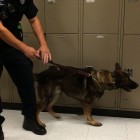The New Canaan Board of Education last week debated whether to adopt formal goals for the upcoming school year designed to address issues of race through staff training, changes to curriculum and parent education, among other areas.
Draft goals discussed at the Board’s July 13 meeting (they can be found here, under Goal 4-2, and embedded below as a PDF) include creation of what would be the districts’ first “statement on equity, diversity and inclusion,” as well as an update on Social Studies curriculum and identification of “additional opportunities in other content areas to increase content on diversity and inclusion K-12.”
Some Board members voiced support for adopting the goals, while others said they were concerned about introducing the changes during an academic year that likely will include some form of distance learning amid the COVID-19 pandemic that strains the “bandwidth” of educators and where spending on schools is tight. Sheri West said she strongly supported the new goals and that it’s “crucial that at this moment in history, that we as a Board, as educational leaders in our district that we communicate the importance of these values and really truly that they are at the cornerstone of what we do—our values and our belief system and our actions.”
“I especially like the addition of the professional development and of the parent education,” West said during the 3.5-hour meeting, held via videoconference. “One thing I would like added is I believe in order for us to execute on these goals, we are going to need budget dollars to bring in an expert consultant. I don’t think this is work that we can do alone. I think many districts have already or are hiring DEI [diversity, equity and inclusion] leaders for their districts.




